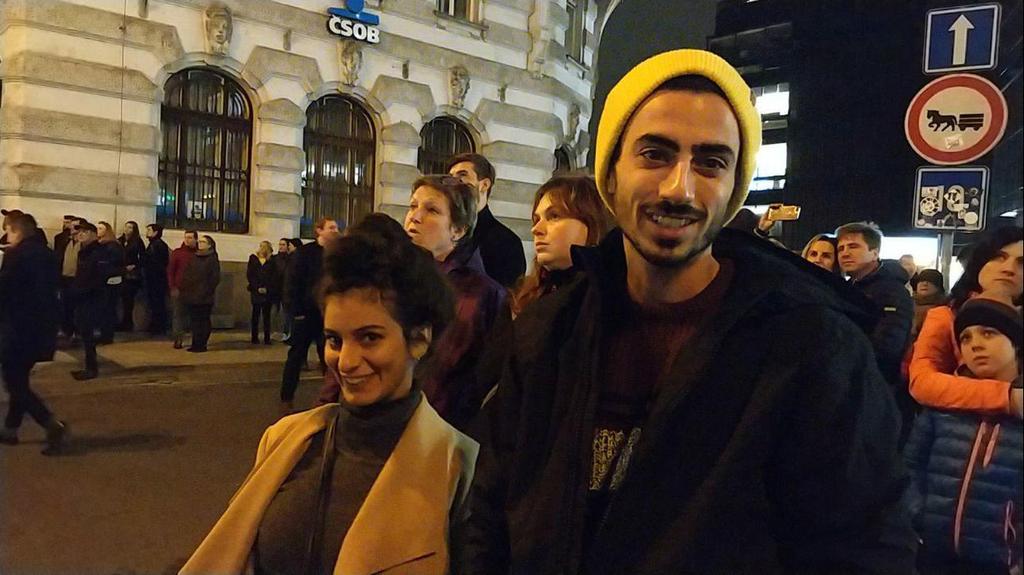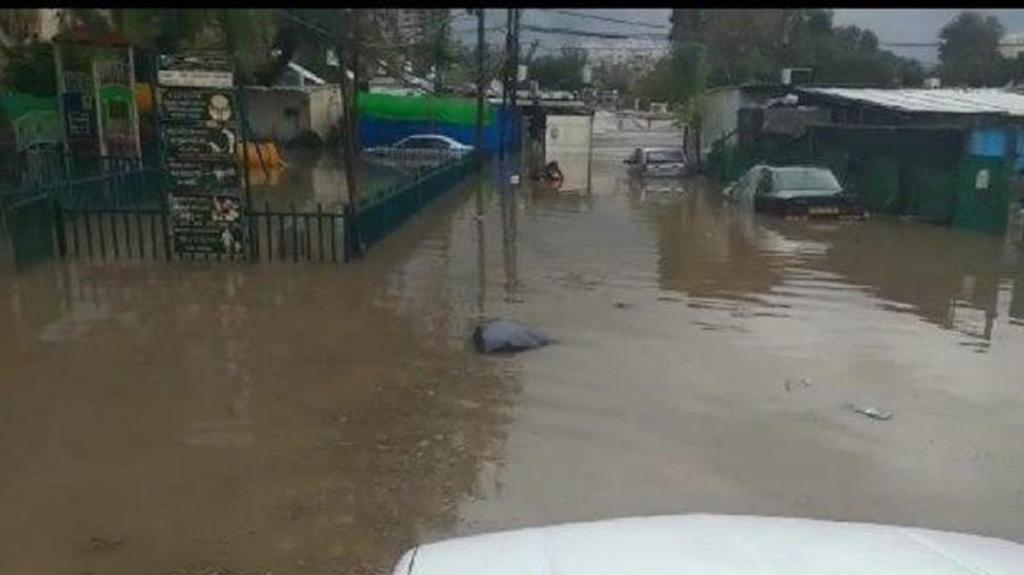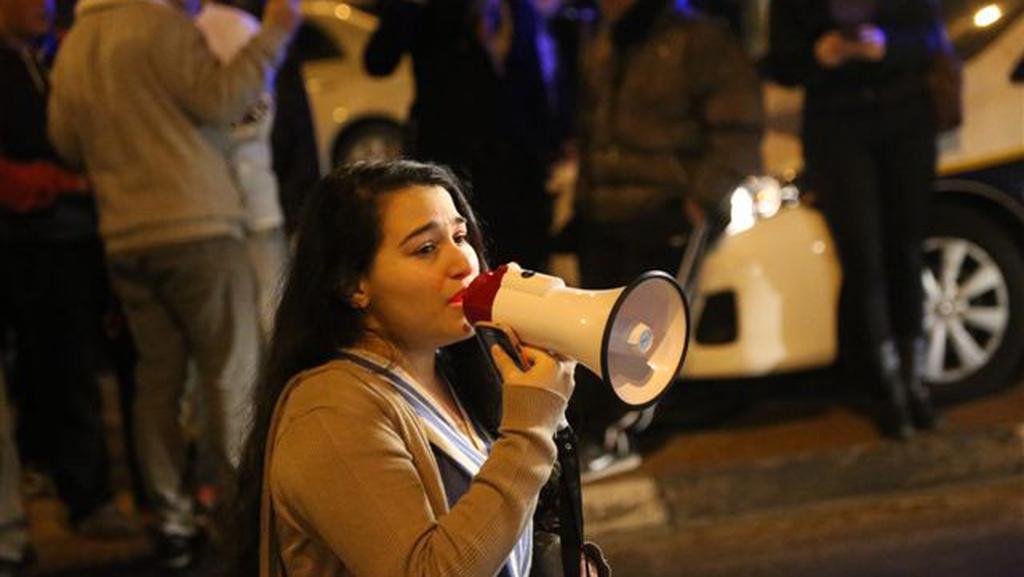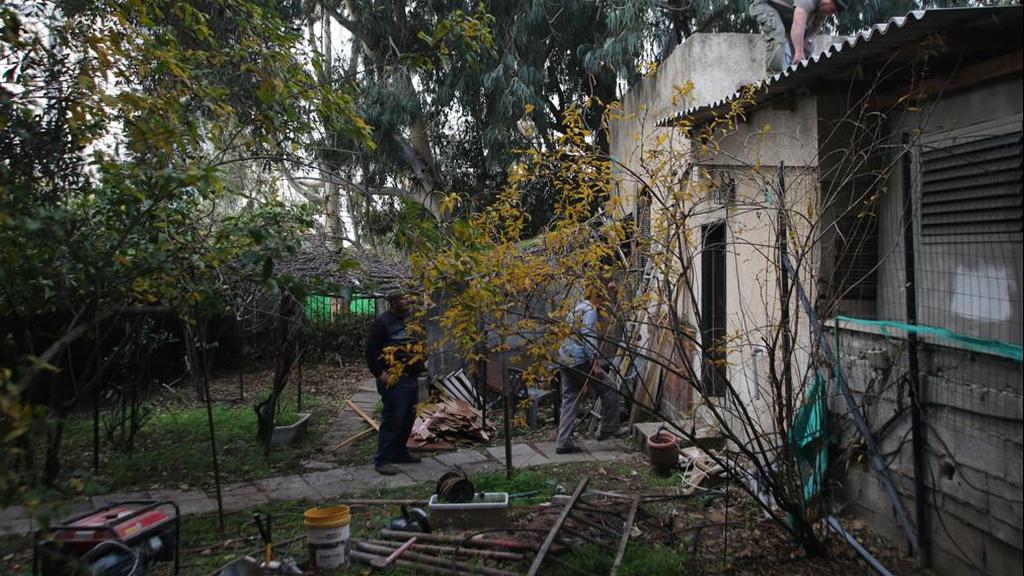Getting your Trinity Audio player ready...
I got a phone call last Saturday from an unknown number.
"Did I reach the newspaper?" asked a woman on the other line. "I'm live at the HaArgazim neighborhood in southern Tel Aviv. Our houses are filled with water. I called emergency services, but no one answered. I wanted to ask you if you could please send a reporter."
The local reporter, quiescently, turned out to not be far from them, at the nearby Hatikvah Quarter, where not long before I got the phone call, Stav Harri and Dean Shoshani perished in a flooded elevator.
People on social media kept posting increasingly surreal images from southern Tel Aviv: some cars floating on the water and others sucked into a sunken underground garage and people surfing in streets that had already become rivers.
4 View gallery


Stav Harari and Dean Shoshani, both aged 25, drowned when the elevator in which they were trapped became flooded
On the very next day, in the Abu Kabir neighborhood of the city, emergency services evacuated 56-year-old Ora Griv from the house in which she grew up.
Her parents, immigrants from Iran, arrived in the neighborhood during the 50s, and, with encouragement by the government, settled in what was then no-man's land that was victim to constant sniper fire.
In Israel, we sometimes call these people "pioneers."
But the administration never bothered to regularize the status of Abu Kabir's residents, denying from them basic municipal services - and instead of honoring them as "pioneers," they became "squatters" subject to eviction.
This story is not exclusive to Abu Kabir. Such is the reality in other low income – and always ethnically middle eastern – neighborhoods of " The White City."
In HaArgazim, in Kfar Shalem, in Nes Lagoyim and the northern outreaches at Givat Amal, whose residents marked a victory two weeks in their legal battles against city government and the billionaire businessmen Yitzhak Tshuva, who both colluded to have them evicted.
Tel Aviv District Court ruled that the residents, who also settled the area during the 50s and whose status was never formalized, are not squatters, and that the state had grossly violated its settlement with them to provide adequate housing.
But the legal torture is not yet over, given that the compensation totals to NIS 42 million to be allotted between 50 families – barely NIS 1 (approx. $290,000) million per household.
Just imagine if the residents of the jet-set residential project not from there were evicted, where the residents were given the opportunity to regulate their status in return for compensation.
This disgraceful compensation is not only not enough to buy an alternative housing option - and of course way less than the value of the houses they live in now - but it represents a modicum of what they have endured over the past decades.
Their names have been besmirched, they have experienced endless legal battles and their neighborhood has become a slum - a deliberate and declared policy of city hall for years now, aimed at running the residents out.
This policy, by the way, is still ongoing. For eight days straight, Givat Amal was in complete darkness due to the power going out and no one trying to fix it.
Only on Tuesday, following protests, was the power put back on.
This is their reality. Once every several months, residents must walk unpaved roads in complete darkness.
Just imagine this happening in the mostly upper-middle-class neighborhood of Bavli in northern Tel Aviv.
Tel Aviv municipality never installed proper sewage systems, but luckily – partly due to the quarter's proximity to the rich areas of central and northern Tel Aviv, Givat Amal was not turned into Venice when last weekend's downpour started.
Residents of the HaArgazim and Hatikvah neighborhoods were less lucky, among them Oran Griv, who lost her home.
The residents of Givat Amal are preparing to continue their battle. Residents in Abu Kabir worry about the next evacuation. In the neighborhoods of Hatikvah and Ramat Israel, the Harari and Shoshani families still mourn their young loved ones, who died in an elevator.
This is life for the people whom city hall has abandoned and stopped caring for.
This is the true meaning of "transparent." They call them "squatters" instead of "pioneers", and when it rains, they leave them to drown.




